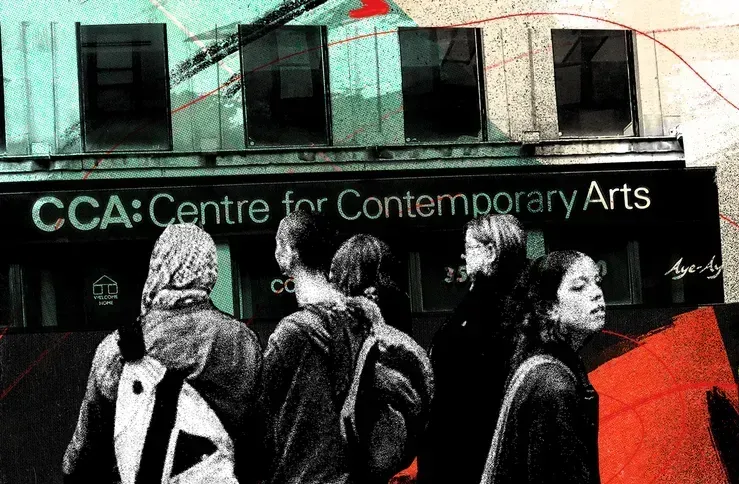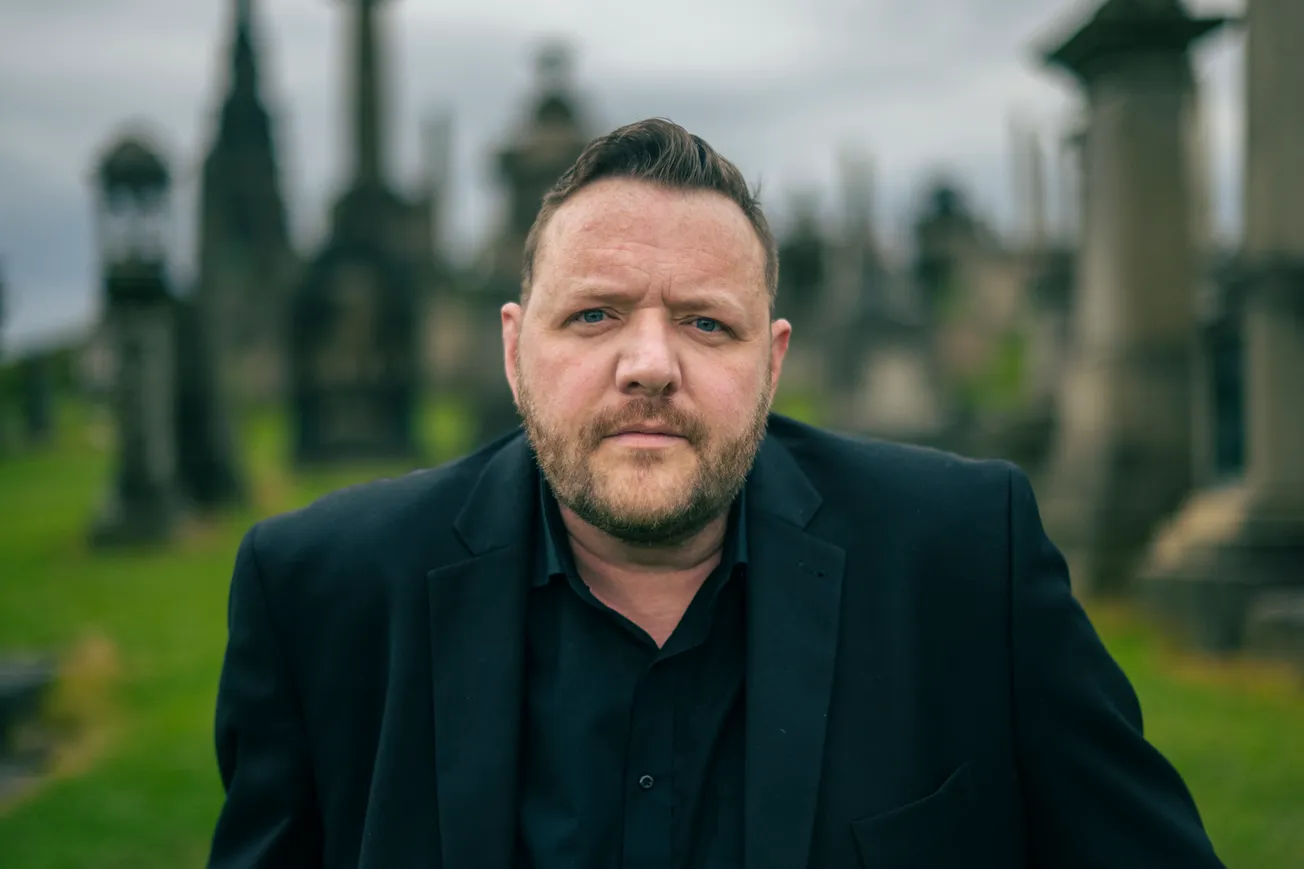Meet the people who stop The Bell being sued
Since starting The Bell, and our sister titles elsewhere, we've received many legal letters. But never once have we actually been taken to court - because we’ve always been certain our reporting is watertight. That’s thanks to Reviewed & Cleared, our crack team of media lawyers. They have a deep understanding of issues like defamation and privacy, and work quickly and flexibly to identify issues and respond to legal threats. They’re trusted by small players like us, and big beasts like Netflix and News UK (parent company of The Times) alike. To find out how they could help you, click below.
It’s a Monday afternoon just south of the River Clyde. Earlier, the rain was biblical, but now the sun is breaking through the cloud cover, pouring through the glass frontage of a café onto a man’s face as he sits reading a book.
He smiles warmly and waves me over. Not only does he exude the sartorial trappings of an artist — purple cords, multicoloured timepiece, earrings, painted blue nails with cloud detailing, chunky trainers — he also threads arcane terminology into conversation from almost the moment we begin to chat. Terms like “chaos magic”, “Kantian philosophy” and “quantum theory” flow fluently from his lips — my incomprehension be damned.
The man, Oliver Braid, was born in Birmingham in the mid 80s. He is — or at least was — a contemporary artist, having graduated from the Glasgow School of Art in 2010. For seven years he carved out a successful career as a working artist, putting on a number of his own exhibitions across the UK. In 2011, he exhibited at the “Red Shed” at BBC Scotland: a six-week residency period between himself and another artist of “potential romantic interest”. They met daily to produce a collaborative series of drawings, which once completed were exhibited and sold at BBC Scotland to pay for their first proper date together. A year later, he was back on the BBC, this time on the Culture Show.
Braid was, according to his friend and a mutual acquaintance of ours, Neil Scott, “one of those fresh artists who looked like he was jostling his way to the top”. Scott described his work in a 2022 article as “colourful, maximalist, and beautifully crafted” — centring on themes of “friendship, the search for love, sociopathy and obsession”. On Braid’s own website, he describes himself as a “philosophical embroiderer”, his work informed by what he terms the ‘certainty of insignificance’. “[A] pro-hedonic Pascal’s Wager of my own making, designed to exuberantly extol the likelihood that one’s actions in the world will be insignificant”.
Confused? Me too. But prepare to be even more perplexed.
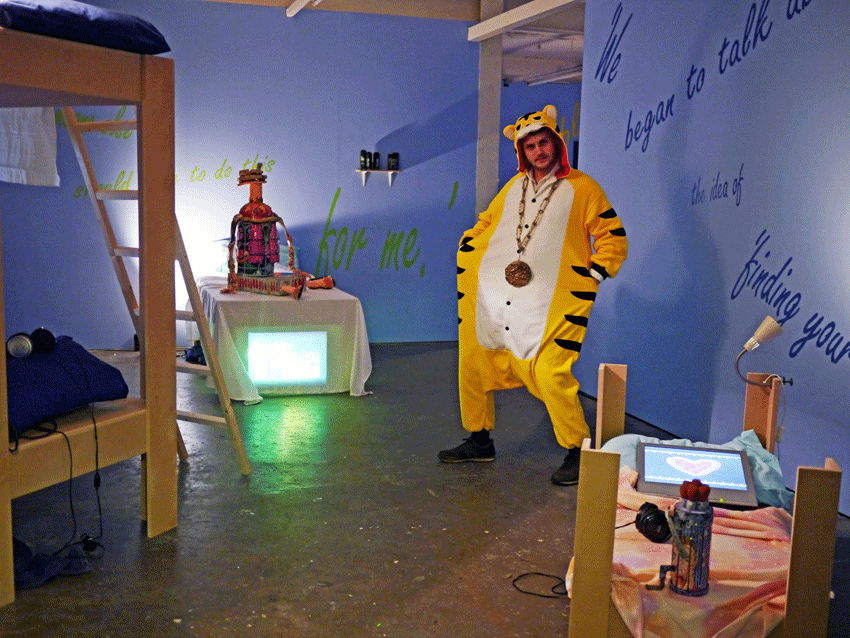
Thanks for reading The Bell. We’re Glasgow's new newspaper (almost one year old!), delivered entirely by email. Sign up to our mailing list and get two totally free editions of The Bell every week: a Monday briefing, full of everything you need to know about that’s going on in the city; and an in-depth weekend piece like Robbie's brilliant interview here.
No gimmicks: just click the button below and get our unique brand of local journalism straight to your inbox.
Fledgling phase
In reality, Braid was growing increasingly disillusioned with the world of community engagement art that was prevalent at the time. “New Labour had created a glut of unemployable people with arts degrees,” he explains. He didn’t like the sort of work many of his contemporaries were making in the city, and he made his thoughts known.
After spending some time away in France, he returned to Glasgow, where things soon “got really difficult” between Braid and the creative community with whom he’d been involved. He was spending more and more time at home alone, no longer going into the studio.
This period of creative disenchantment coincided with a “new creative burst of paedophile hunting stingers that were coming onto the internet through Facebook Live”, Braid explains. At the time, he was making a lot of embroidered sculptures, which required a lot of sitting down to knit and sew. While embroidering, Braid would watch videos on his computer, and soon wound up getting sucked into this nascent world of social-media vigilantism. “What could be better than watching people getting smashed up and rolled around the floor, right?” he says with a grin.
The premise of paedophile hunting is relatively simple, if ethically complex. By posing as children online, ‘hunters’ wait for ‘predators’ to initiate sexual communications with their decoy accounts. They do not initiate conversations, or meet-ups. When predators ignore reminders that they are ostensibly talking to children (or rather decoys posing as such), hunters then expose them in livestreamed sting operations once they have gathered enough evidence of grooming (the filmed confrontation reminiscent of US TV show To Catch a Predator). They then present a dossier to the police. Hunting groups vary from the codified to the chaotic, from the peaceful to the highly aggressive, and even violent.
At this point, Braid decided to leave the creative community that he was part of. “I also got myself thrown out of it,” he says. “I was a horrible person during that period.”
This was around 2015, the early days of the UK’s paedophile hunting community. Braid wanted to create a new “community engagement project” by bringing one of these piratical paedophile hunting teams to Glasgow, but those plans fell through.
Ascendant hunter
In August 2017, Braid created an account on Grindr and began building a chat log around a man who’d engaged with his decoy account. “It's not like I had any training, but after you've watched loads of videos, you can just sort of work out what to say.” Outside the Conservatoire a fortnight later, he joined forces with a fellow hunter called Gordon Buchan with whom he’d been chatting online. When the target — a lecturer at the Conservatoire — walked past them, Braid was convinced they had their guy. Gordon disagreed, but the moment had gone, and the man went back inside the building. They called the police, handed over the dossier, and the man was arrested and later ordered to do a community payback order.
Buchan and Braid formed a group, and recruited ten or so members to assist. They called themselves Wolf Pack Hunters UK — Scotland’s first paedophile hunting team (Child Protectors Scotland were set up around the same time, but Braid thinks Wolf Pack was the first Scottish group to organise a sting). Buchan was the hunter, Braid the decoy. They would meet every Tuesday night at the Wasps (Workshop & Artists Studio Provision Scotland) studios in Dennistoun, where Braid was living in an artist’s flat. “Sometimes there'd be like 25 people there, and I thought: Oh my god, I’ve accidentally formed a community. And for that first year, it was really amazing,” Braid recounts.
Someone eventually reported Braid, and Wasps kicked him out for using the space for Wolf Pack activities, despite Braid’s conviction that “paedophile hunting is a creative practice”. For a year the Wolf Pack met regularly and organised multiple stings each month. “It felt very like a family … a group of people working together for a common goal. Although, at the same time I always felt like an interloper, because I felt like I had this very different aim,” Braid says, referring to his involvement in this vigilante activity having been an extension of his artistic practice. Parsing Wolf Pack’s archive for evidence of Braid’s creativity, I find a Pokémon-themed ‘Wolf Pack: Gotta catch ‘em all!’ banner, and branding which shows a flair for design — but I still struggle to reconcile it all with Braid’s conception of an artistic project.
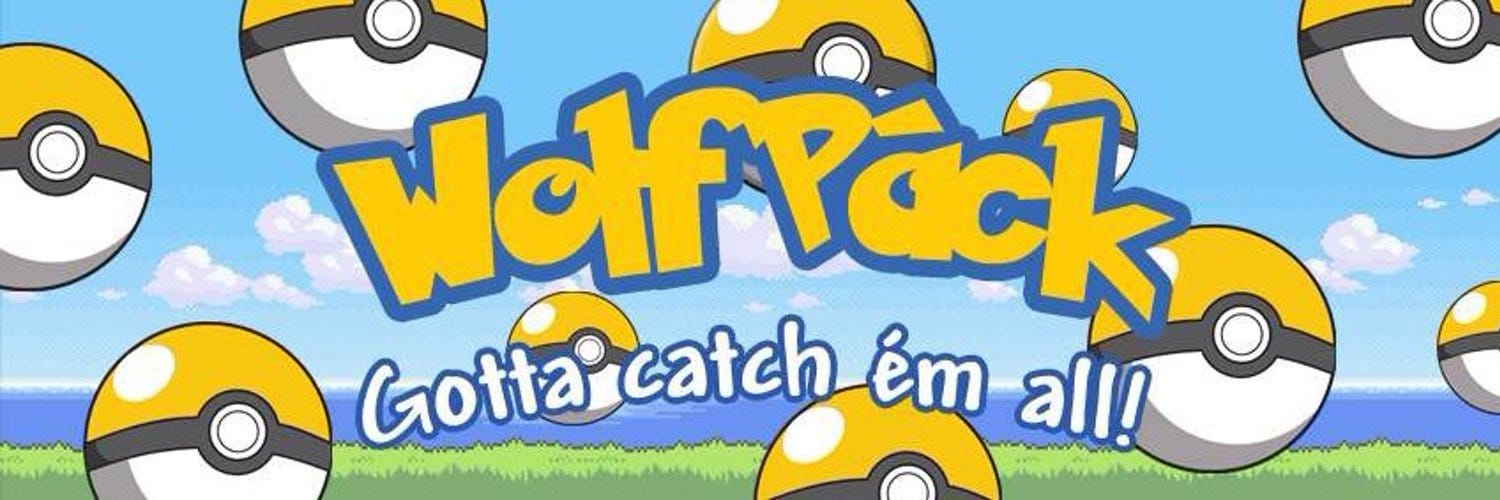
Either way, Braid was an adept decoy, and also led a number of stings in the early days of Wolf Pack. The videos I’ve seen in which he confronts alleged paedophiles are forensic; Braid delights in slowly trapping the men with their own words, steadily tightening his grip as he reveals each grim detail and piece of evidence.
Wolf Pack’s most controversial moment happened in 2018, when they confronted Kenneth Long, an alleged paedophile in Armadale, West Lothian. Braid had been the decoy, but wasn’t at the sting; a saving grace, in hindsight. The group turned up at the man’s house because they believed he had a child of the same age as their decoy (a 12 year-old boy) inside. As they streamed a Facebook Live, a mob appeared, chanting “Beast” and “Get him out”.
The gathered crowd broke into his house and set his car on fire. Police eventually restored order and took the registered sex offender into protective custody. “If there hadn’t been police there I think people would’ve taken matters into their own hands,” a witness told the Edinburgh Evening News.
It’s an example of the obvious dangers inherent in paedophile “hunting”. But the event was unusual for a Wolf Pack sting given the involvement of a group of locals, rather than the select few hunters with a shared code of practice (Braid co-wrote an 80-page induction manual which had to be signed by decoys, for example). Long was later jailed for 18 months and placed on the sex offenders register for 10 years. He admitted to sexually communicating with a man pretending to be a 12-year-old boy.
Wolf Pack would go on to mount around 130 stings, a large number of which resulted in arrest and charge. Wolf Pack’s cases were the first in Scotland to go to court, including a test case in Edinburgh. According to data gathered by Wolf Pack that we’ve seen, many targets were given custodial sentences, community payback orders and placed on the sex offenders register. Their data also shows that one man, an alleged paedophile who Wolf Pack targeted in Glenrothes in 2018, took his own life before a court date. (Braid says he was not involved in that sting.)
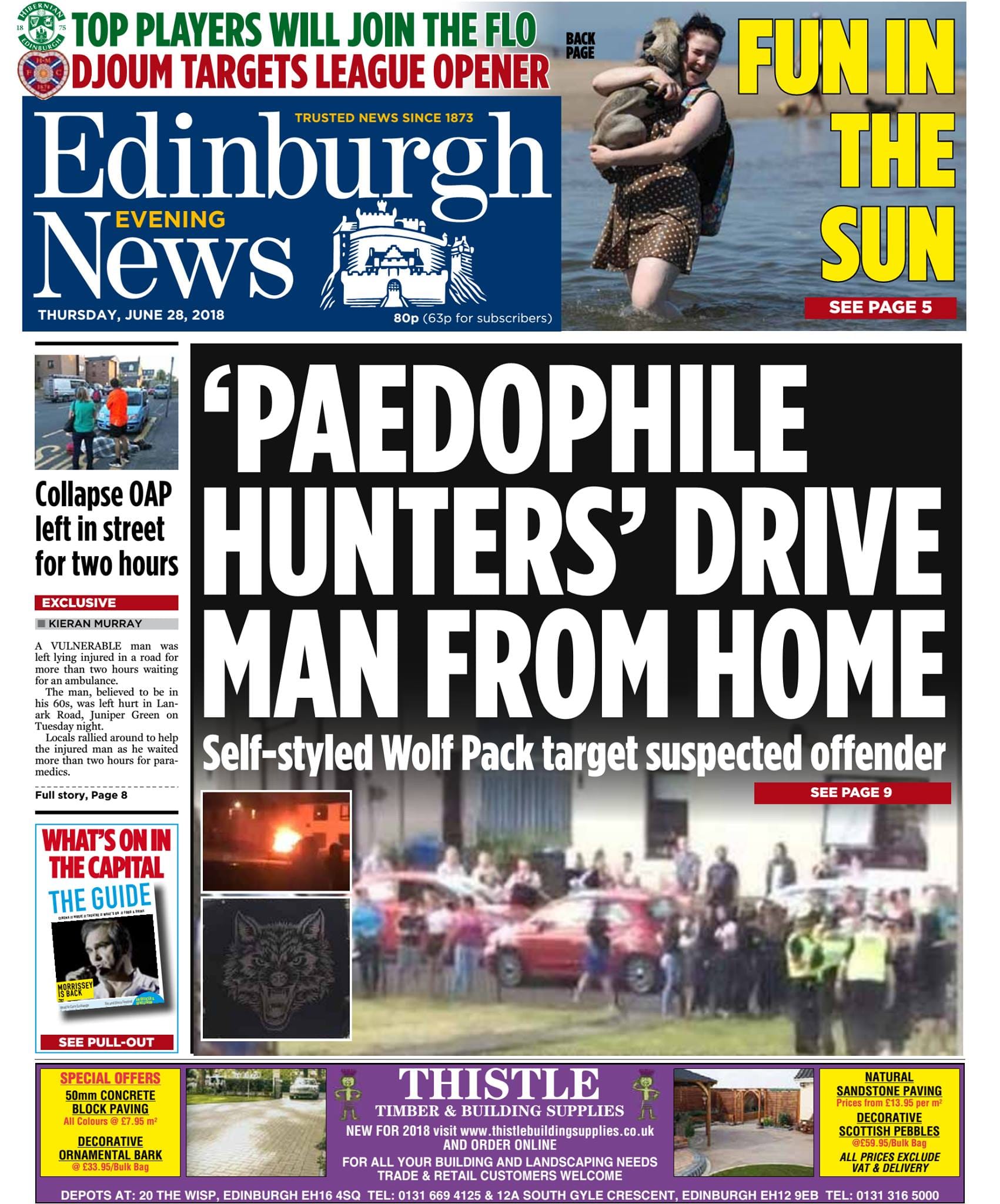
In 2019, Members of Wolf Pack also allegedly attacked an online troll called Stewart McInroy, kicking him in the head and body, head-butting him, and repeatedly threatening to kill him while recording the alleged attack on a mobile phone. Braid was not involved. In 2020, Buchan and his son, both from Glasgow, were banned from paedophile hunting activities for two years, following a breach of peace in Forfar which sparked a police operation and led to six arrests. In court, they admitted to wearing masks and hoods, waving banners, shouting, swearing and making offensive remarks, all the while broadcasting their behaviour live on social media.
By this point, Braid had spent some five years of his life increasingly immersed in the world of paedophile hunting. He’d co-founded and helped grow Wolf Pack into one of the UK’s most prominent hunting groups. They had amassed more than 150,000 followers on one of their Facebook pages, and appeared on Anything Goes With James English in 2020. But Braid had paid a price for his involvement, losing most of his friends, his house, and almost being fired from his job. “I was lucky that Covid happened,” he says nonchalantly, explaining that this gradually brought about an end to his time in the Wolf Pack. Slowly, Braid had begun to realise that hunting was a vehicle for directing his own shame and rage outwards — confirming his view of the world as a cruel place; a Manichaean fight between good and evil.
So would he do it again, I ask. He hesitates for a long time. “Old parts of me think this was a mistake. You fucked up a career that you'd worked on for like 10 years,” he says. But Wolf Pack allowed him to “create his own world” free from the “status anxiety” of the art world. “So would I do it again? The person that I want to be, the person that I'm working towards being would say ‘Yeah’, because that is what I did.”
Almost two hours into our conversation, I remain puzzled — and intrigued — as to why Braid dedicated half a decade to this life. He is the opposite of what I expected a hunter (or more accurately a decoy) to be: gentle, eccentric, camp. For whatever reason, he found himself drawn towards dangerous people and situations, to the fringes of society.
Elder hunter
Vigilante paedophile hunting — essentially a form of citizen policing — poses serious questions about retribution, privacy, human rights and the widespread lack of faith in the criminal justice system. It also highlights a divide between the general population, largely in favour of such activity, and the police and criminal justice system, which is overwhelmingly opposed to the tactics. They argue that evidence is often inadmissible in court, and can pose a risk to alleged ‘predators’.
This risk can either be at the hands of a mob, or at the alleged paedophile’s own hands; at least nine men have killed themselves in the UK after being labelled paedophiles or child sex offenders on social media. Yet in 2023, 90% of the evidence in offences of meeting a child following online sexual grooming came from hunter groups. Do the ends justify the means?
In the UK alone, over 150 hunting teams were collectively responsible for 1,148 confrontations with suspected paedophiles in 2021, according to Mark de Rond, author of Dark Justice: Inside the World of Paedophile Hunters (a book in which Braid contributed a chapter). “Their evidence helped secure prosecutions in hundreds of cases,” de Rond has found.
He has described the growth of paedophile hunting as a “controversial civic response” to the “ever-growing societal alarm about the threat of online child sexual exploitation”. The sting, according to de Rond, is “the final battle between good and evil that tests the character of a hunter and must be played out before a live audience … What police presume is a means to an end is, for hunters as heroes, an end itself”.
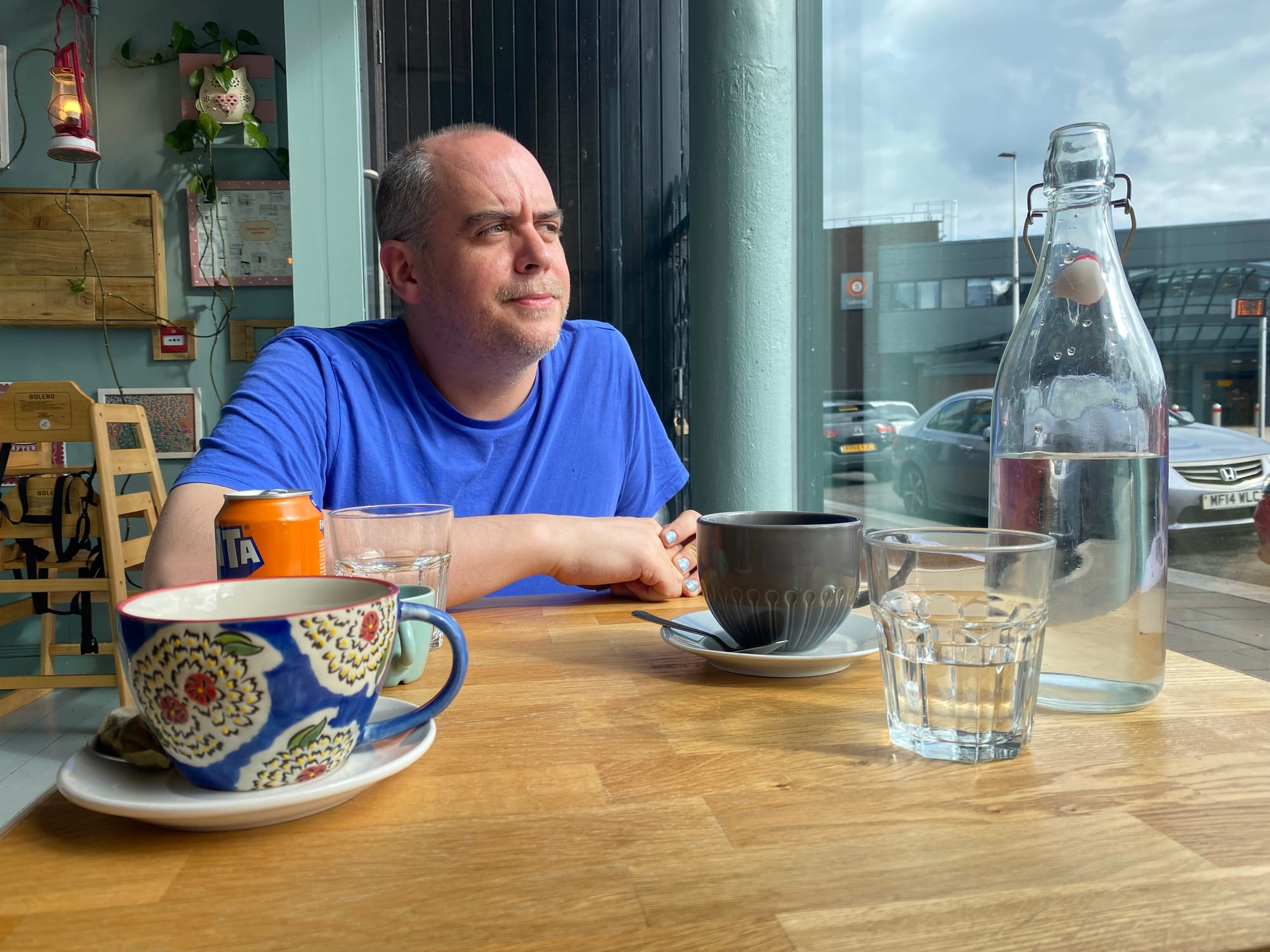
When I drop de Rond an email about Wolf Pack Hunters, he responds swiftly, describing Braid as someone who “knows more about the history of hunting than almost anyone else”. De Rond describes Wolf Pack’s more aggressive stance in his book, which set them apart from the typical English hunting teams. It is hard to square this with the Braid I’ve met. “It's not lost on me that I love this idea of doing something that was quite aggressive, and then being in this position where I'm like, really docile and welcoming and nice,” Braid says.
De Rond tells me that social media influencers and celebrities appear to be taking an interest in joining hunts. The New York Times did a recent investigation into the viral — and increasingly violent — new brand of hunters in the United States. They found that there have been more than 170 violent vigilante attacks by paedophile hunters since 2023, following analysis of hundreds of videos and social media posts.
Hunter turned historian
A month later, Braid welcomes me inside his home, a riot of colourful wallpaper, artwork and furniture. His wall of books in the living room is neatly organised into various sections: philosophy, self-help, novels by heterosexual writers, queer books, Scottish, books about art. Earlier in the day, Braid was speaking to a researcher from the BBC about a TV proposal on paedophile hunters. He was amused to be consulted as a sort of paedophile hunting historian. Braid now has a full-time job for the first time, one which involves community engagement through the arts, providing creative experiences for marginalised people. He has also taken up talk therapy, yoga and CBT.
Today, Braid feels okay about the role he and others played in the Wolf Pack. “The evidence that is compiled by paedophile hunting teams feels fairly legitimate to me,” he says. “It's truthful. It's factual that the people that are highlighted by those chats are having chats with what they believe to be children. And in a lot of cases, arranging to meet those children with really clearly, explicitly stated sexual intent.” To his knowledge, everybody that the group handed over to the police and subsequently went through the court system was found guilty.
When I probe for an explanation of why Braid found himself in this world, he explains that friends of his were victims of childhood sexual abuse. “I also think it's fairly common, particularly at a time where, for young queer people who couldn't be themselves with their family, that they end up finding themselves in these kinds of situations with more dangerous, older, abusive people,” he adds. One friend of his was thrown out of school for their homosexual ‘transgressions’, and wound up being sexually exploited by a much older man in exchange for ‘safe’ shelter. This is the closest I get to a motivation — other than the artistic — of why Braid founded Wolf Pack Hunters with Buchan.
Was this vigilante paedophile hunting group really an arts-based community engagement project, or merely a vehicle to exorcise demons and catch the archetypal bad guys? We wrap up, and I resign myself to the mystery, realising I’ll never fully understand Braid’s motives.
We hope you enjoyed your taste of The Bell's in-depth local reporting. To make sure you never miss out again, sign up to our mailing list and get two totally free editions of The Bell every week.
You'll get a Monday briefing, full of everything you need to know about that’s going on in the city; and an in-depth weekend piece like the one you just read.
It's totally free to sign up: just click the button below and get our unique brand of local journalism straight to your inbox.
If you’d like to sponsor editions of The Bell and reach over 10,000 readers, you can get in touch at grace@millmediaco.uk or visit our advertising page below.
Comments
How to comment:
If you are already a member,
click here to sign in
and leave a comment.
If you aren't a member,
sign up here
to be able to leave a comment.
To add your photo, click here to create a profile on Gravatar.



